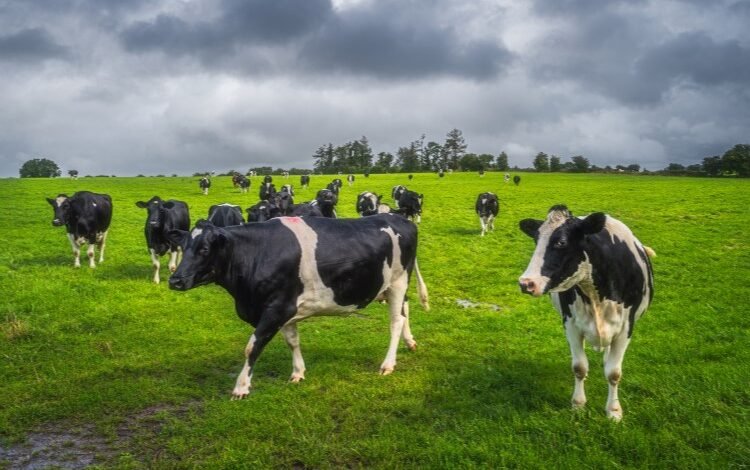‘Unbelievably cynical’: Will there be no exit scheme for Irish dairy?

The dairy exit scheme was recommended to the Irish government as a tool to reduce greenhouse gas emissions from the sector as the country aims to slash emissions from agriculture by 25% by 2030 to meet EU targets.
The scheme, also referred to as a cow cull scheme, caused a stir among producers when first announced, but it was never progressed and did not form part of the government’s 2024 budget. According to the plans, Ireland would need to reduce its dairy herd by around 65,000 cows per year for the next three years in order to meet emissions targets, with farmers receiving compensation amounting to €600m in total.
But minister of agriculture Charlie McConalogue told Agriland that the scheme was now ‘off the table’ and he was ‘confident that…we will retain our nitrates derogation and that the growth in productivity and exports achieved by our dairy sector over the last decade can be maintained’.
Speaking to RTÉ, the minister said there was ‘real significant change ongoing at farm level’; for example, a 30% reduction linked to fertilizer use had been achieved and the government is offering grants to allow farmers to adopt new slurry spreading machines.
As for reducing the herd without an exit scheme, he said he wanted to see growth in the tillage sector to reduce emissions.
But the president of the Irish Creamery Milk Suppliers Association (ICMSA) Denis Drennan told RTÉ that the proposed scheme had created expectations among farmers and that just weeks ago it had still been considered by officials.
“It is unbelievably cynical and gives a glimpse of what the Irish government really thinks of its dairy and livestock farmers and the sector that they built,” Drennan said.
Irish milk production recorded a significant yearly decline, the AHDB reported. Production was down 29% YoY in Q4 2023 and continued to slide in January (-18%) and February (-13%) 2024, with factors such as wet weather, late calving and increased production costs largely to blame. Increased environmental regulation is also a concern for producers, particularly with regards to restrictions on stocking rates.
Minister McConalogue recently provided an exemption to the 15% crude protein requirement for farmers farming above 130kgs of N per hectare, a decision that ICMSA’s deputy president Eamon Carroll described as ‘a welcome development, , but the Minister should change the procedure for securing the exemption by simply extending the date to 1 May with an option for further extension, remove the paper trail requirement, and actually helping farmers deal with the serious challenges facing them at this time.”




